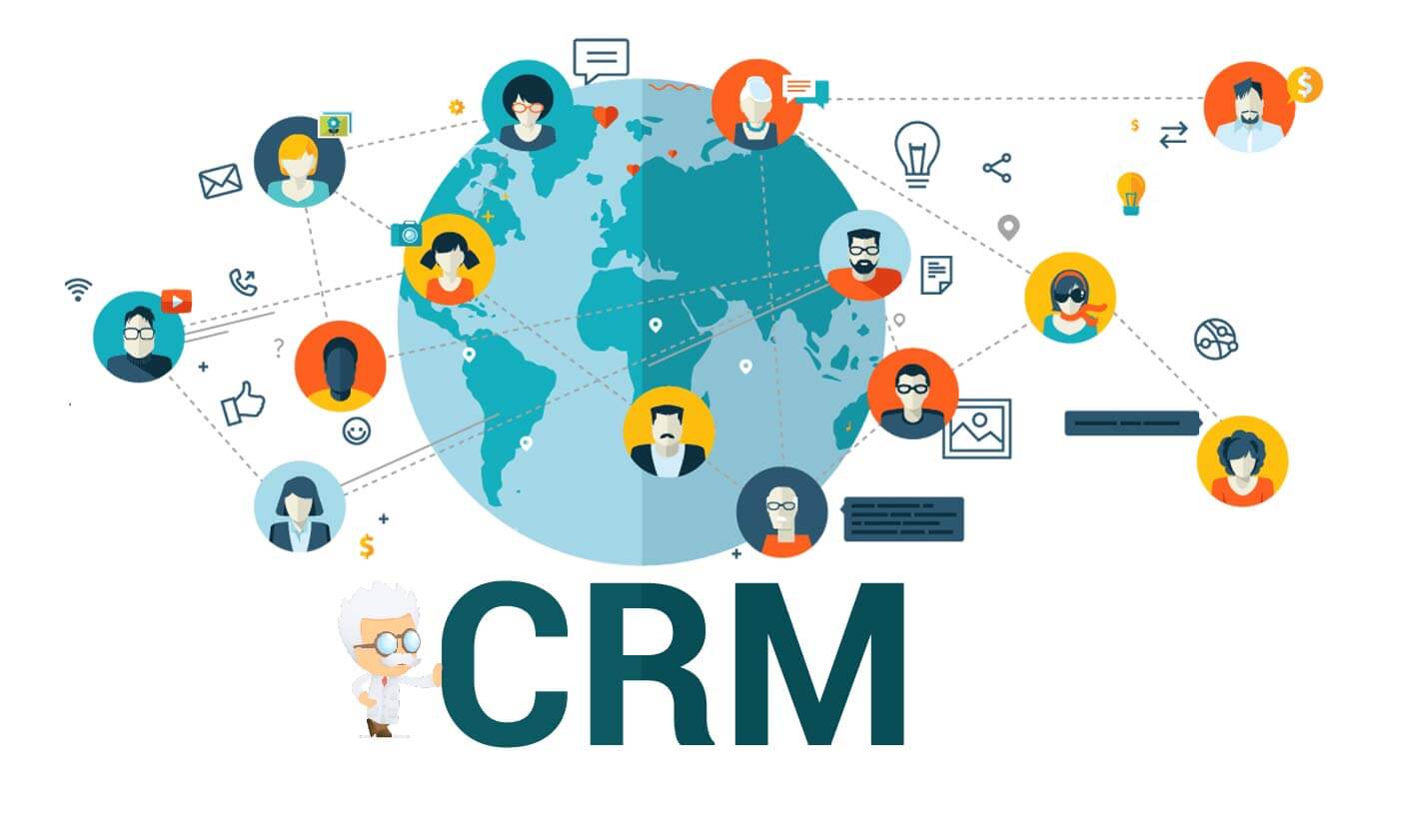How CRM Systems Help Improve Customer Experience?
In a world where competition is increasing day by day, improving customer experience has become a central focus for businesses. Customer Relationship Management (CRM) systems play a crucial role in achieving this goal by enabling companies to better understand their customers and provide personalized services that meet their needs. In this article, we will explore how CRM systems contribute to enhancing customer experience and increasing satisfaction and loyalty.

In today's business world, customer experience has become a decisive factor in the success or failure of companies. Customer satisfaction and loyalty can significantly impact brand reputation and business growth. As market competition intensifies, companies are constantly seeking new ways to enhance their interactions with customers and continuously improve their experience. This is where Customer Relationship Management (CRM) systems come into play, as essential tools for achieving these objectives.
CRM systems assist companies in gathering and analyzing customer data to provide personalized and relevant services tailored to individual needs. By leveraging advanced technologies such as artificial intelligence and predictive analytics, companies can better understand customer expectations and anticipate their future needs with greater accuracy. Additionally, these systems contribute to improving the efficiency of sales and support teams, positively affecting the speed of responding to customer requests and resolving issues more effectively.
In this article, we will examine how CRM systems can be a strategic partner in improving customer experience by providing deep insights into customer behavior, enhancing interactions, and increasing satisfaction and loyalty. We will also discuss practical examples of how CRM systems are used across various industries to achieve outstanding customer experiences.
What is a CRM System and What is its Importance?
A Customer Relationship Management (CRM) system is a technological tool designed to help businesses manage and analyze interactions with their current and potential customers. This system enables companies to collect data from various channels such as email, phone calls, social media, and websites, then organize and analyze this data to enhance customer interactions. The primary goal of a CRM system is to strengthen relationships with customers, increase their satisfaction and loyalty, and consequently drive business growth.
The importance of a CRM system lies in its ability to provide a comprehensive view of the customer, helping companies understand their behaviors and needs more effectively. A CRM system can improve the efficiency of sales, marketing, and support teams by equipping them with tools to deliver better and more personalized service. Additionally, a CRM system can assist in identifying new revenue opportunities by pinpointing customers most likely to purchase or engage with new offers. Ultimately, a CRM system enhances the customer experience and increases the likelihood of long-term business success.
What is the Role of CRM Systems in Improving Customer Experience?
Customer Relationship Management (CRM) systems play a crucial role in enhancing customer experience by providing a range of tools and features that help businesses interact more effectively and personally with their customers. Here’s how CRM systems contribute to improving customer experience:
- Data Analysis and Interaction Personalization: CRM systems gather comprehensive data about customers, including purchase history, preferences, and previous interactions with the company. By analyzing this data, businesses can offer tailored promotions and services that align with each customer’s needs and expectations, significantly enhancing their experience.
- Improving Response Time: CRM systems provide tools for managing customer requests and resolving issues efficiently. These systems enable support and marketing teams to quickly access customer information and update their status, reducing the time required to handle inquiries and solve problems.
- Managing Multi-Channel Interactions: CRM systems allow tracking of interactions with customers across multiple channels such as email, phone calls, and social media. This ensures that businesses can deliver a seamless and consistent experience regardless of the channel the customer uses to communicate.
- Providing Personalized Experiences: By utilizing customer data and preferences, CRM systems help businesses offer more personalized experiences. Tailored promotional offers or reminders about upcoming deadlines can be sent based on customer behavior, enhancing their satisfaction and loyalty.
- Anticipating Customer Needs: Some CRM systems use artificial intelligence for predictive analytics, helping businesses anticipate future customer needs based on current behavior. This allows companies to take proactive steps to address their needs before they even arise.
By improving communication, personalizing offers, and providing fast and effective service, CRM systems significantly enhance customer experience and increase satisfaction and loyalty.
CRM System and Customer Interaction Tracking
Customer interaction tracking is one of the core functions of a Customer Relationship Management (CRM) system and is a vital element in improving service quality and customer experience. CRM systems offer advanced tools that allow businesses to record and analyze every customer interaction, enhancing the ability to manage relationships more effectively. Here’s how a CRM system contributes to tracking customer interactions:
- Comprehensive Interaction Logging: A CRM system records all interactions between the company and the customer, including phone calls, emails, social media communications, and even in-person visits. This comprehensive logging provides businesses with complete access to a customer's interaction history, helping them better understand the context of each engagement.
- Interaction Data Analysis: CRM systems offer tools to analyze interaction data to identify patterns and trends in customer behavior. Through these analyses, businesses can discover common issues, customer preferences, and potential opportunities to improve interactions and enhance the customer experience.
- Managing Customer Inquiries and Complaints: A CRM system can organize and track customer inquiries and complaints, ensuring that each issue is handled appropriately and in a timely manner. Tracking these interactions helps improve team responsiveness and ensures problems are resolved quickly and efficiently.
- Enhancing Personalized Communication: By tracking customer interactions, a CRM system can provide sales and support teams with accurate information about each customer. This helps in personalizing communication and delivering a more tailored experience by understanding the customer's needs and preferences.
- Highlighting Sales Opportunities: Through interaction tracking, a CRM system can identify customers who may be interested in additional products or services based on their behavior and past interactions. This allows businesses to capitalize on cross-selling and upselling opportunities in a targeted and thoughtful manner.
- Strengthening Long-Term Relationships: Interaction tracking helps businesses understand how to improve their relationships with customers over the long term. By knowing what satisfies customers and what frustrates them, companies can take informed steps to enhance loyalty and continuously improve the customer experience.
Thanks to these capabilities, a CRM system plays a fundamental role in effectively managing customer interactions, contributing to enhanced customer satisfaction and overall experience with the company.
CRM System and Customer Data Management
Customer data management is one of the fundamental aspects of a Customer Relationship Management (CRM) system, serving as a powerful tool for organizing, analyzing, and storing customer-related information. Effectively managing customer data is crucial for improving communication with customers and enhancing their overall experience. Here’s how a CRM system contributes to customer data management:
- Centralized Data Collection: A CRM system collects and stores all customer-related data in a single centralized database. This includes basic information such as name, address, and contact details, as well as additional data like purchase history, product preferences, and interaction records. Having a centralized database ensures that all teams have access to accurate and comprehensive customer information.
- Customer Data Analysis: A CRM system can analyze customer data to identify patterns and trends in their behavior and needs. Using advanced analytical tools, businesses can gain valuable insights that help them make informed decisions about marketing strategies, sales approaches, and service offerings.
- Automatic Data Updates: A CRM system allows for automatic updates of customer data whenever changes occur. For example, if a customer updates their address or contact information, the CRM system automatically reflects these changes in real-time, ensuring that teams always have the most current information.
- Data Segmentation and Personalization: A CRM system helps in segmenting data into different categories based on criteria such as geographic location, purchasing behavior, or interests. This segmentation enables businesses to tailor offers and communication more precisely and effectively to each customer group.
- Data Security and Protection: A CRM system provides advanced security measures to protect customer data from unauthorized access or breaches. This includes encryption, access controls, and continuous monitoring to ensure that customer data remains secure and reliable.
- Long-Term Relationship Management: With a CRM system, businesses can track the development of customer relationships over time. By reviewing interaction records and updates, companies can identify their most valuable customers and understand how their relationships have evolved, helping to strengthen long-term loyalty.
- Facilitating Information Access: A CRM system offers advanced user interfaces that make it easy for teams to quickly and efficiently access customer data. Team members can search for specific information, view past interaction records, and update data effectively, enhancing work efficiency and communication.
By efficiently managing customer data, a CRM system contributes to strengthening customer relationships, improving customer experience, and increasing the effectiveness of marketing and sales campaigns.
Conclusion
In today’s business world, Customer Relationship Management (CRM) has become an indispensable tool for enhancing customer experience and driving business growth. By integrating the capabilities of CRM systems in tracking interactions, managing data, and analyzing customer behavior, companies can deliver more personalized and effective services. CRM systems provide a comprehensive view of each customer, allowing businesses to better understand their needs and expectations.
A company’s commitment to using CRM systems is not just about improving customer interactions but also about building long-term relationships based on trust and loyalty. As CRM technologies continue to evolve, their potential to offer innovative solutions that meet changing market demands also grows. Ultimately, investing in a CRM system enhances the customer experience, leading to increased satisfaction and loyalty, and thereby achieving sustained success and growth for the company.
Adopting CRM systems can have a significant impact on improving every aspect of the customer experience, from the initial interaction to providing ongoing support. By leveraging these systems, companies can strengthen their relationships with customers and achieve positive business outcomes in the long term.

